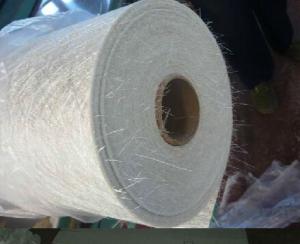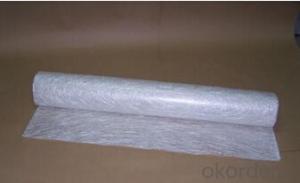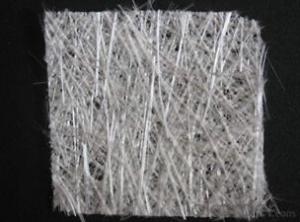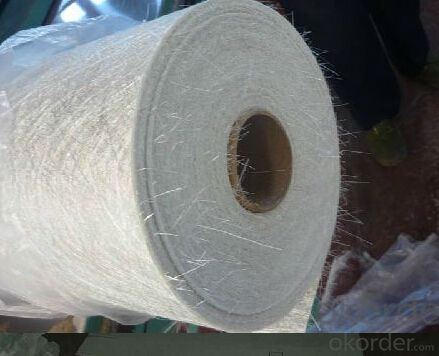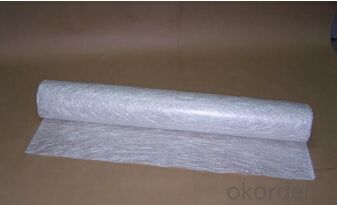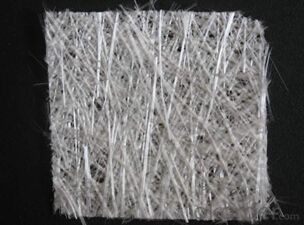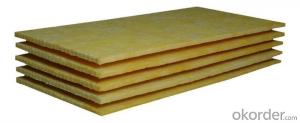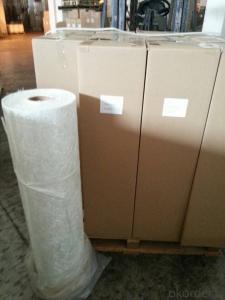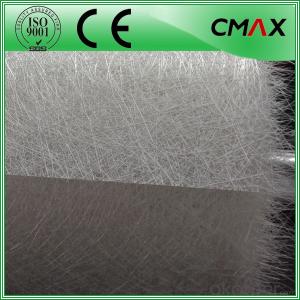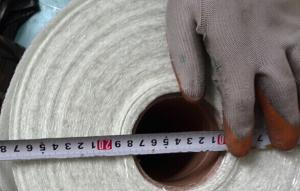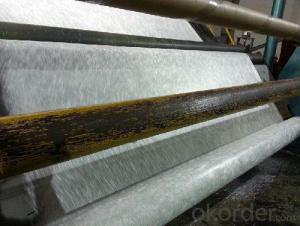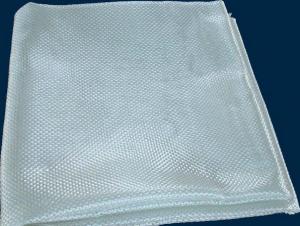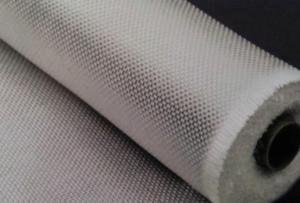Fiberglass Mat Tissue - E-Glass Fiberglass Mat, Powder, 1040mm
- Loading Port:
- China Main Port
- Payment Terms:
- TT or LC
- Min Order Qty:
- 4000 m²
- Supply Capability:
- -
OKorder Service Pledge
OKorder Financial Service
You Might Also Like
Structure of Chopped strand mat
Chopped strand mat is made from fiberglass chopped strands boned with powder binder or emulsion binder.
E glass chopped strand mat is made from fiberglass strands chopped to length and bonded together
with powder binder. Chopped strand mat is used primarily for hand lay-up processes, filament winding and press molding of FRP products. Typical products include bathroom
accessories, pipe, building materials, automobiles, furniture and other FRP products.
This products ischaracterized bg good combination of resin,easg operation ,good wet strengthretention,good laminate transparency
E glass chopped strand mat is made from fiberglass strands chopped to length and bonded together
with powder binder. Chopped strand mat is used primarily for hand lay-up processes, filament winding and press molding of FRP products. Typical products include bathroom
accessories, pipe, building materials, automobiles, furniture and other FRP products.
Images
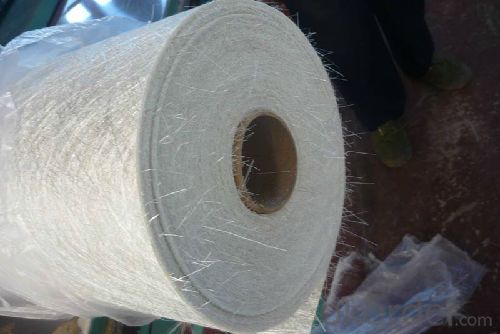
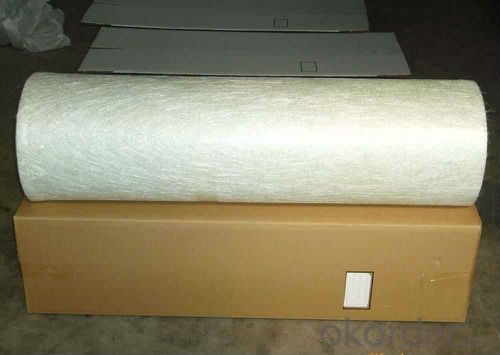
Features of E-glass Chopped Strand Mat
1.Consistent thickness and stiffness;
2.Rapid impregnating and good compatibility with resin;
3.Superior wet through with less air trap;
4.Good mechanical properties and high strength of parts
FAQ of Chopped strand mat
1. Why Choose us?
CNBM is a stated own company, provide the guarantee for the best quality, best service and safety business.
2. How will we guarantee the quality?
a, ISO 9001-2008 quality control system;
b, Strict and regular quality control in production;
c, Inspeciation when loading into container before shippment;
d, Sample stock for one year for quality tracing and record.
3. What is your MOQ?
Our MOQ is one pallet.
4. Can you provide sample?
Yes, samples are in stock. we can offer free sample for you.
5. Payment terms?
We can accept L/C, T/T etc.
- Q: How does fiberglass mat tissue perform in terms of acoustic insulation?
- Fiberglass mat tissue performs well in terms of acoustic insulation. Its dense structure and ability to trap air make it an effective sound absorber, reducing the transmission of sound waves and minimizing noise pollution.
- Q: Can fiberglass mat tissue be used for reinforcing fiberglass tanks?
- Certainly, fiberglass tanks can be reinforced using fiberglass mat tissue. Fiberglass mat tissue, a lightweight and thin material, is commonly utilized in the construction of fiberglass products. Its purpose is to fortify the fiberglass structure, offering added durability and strength. In the specific case of fiberglass tanks, the mat tissue serves as a layer of reinforcement, further enhancing the tank's overall structural integrity. This reinforcement assists in preventing cracks, improving impact resistance, and augmenting the tank's ability to withstand external forces and pressure. Moreover, fiberglass mat tissue boasts ease of use, enabling simple molding or application onto the tank's surface, thus rendering it a suitable choice for tank reinforcement.
- Q: Can fiberglass mat tissue be used for composite pipe manufacturing?
- Yes, fiberglass mat tissue can be used for composite pipe manufacturing. Fiberglass mat tissue provides reinforcement to the composite pipe, enhancing its strength, durability, and resistance to corrosion.
- Q: How does fiberglass mat tissue perform in terms of moisture absorption?
- Fiberglass mat tissue performs exceptionally well in terms of moisture absorption. Due to its composition of multiple layers of glass fibers and a binder, it can effectively resist moisture penetration, making it highly resistant to water absorption. This property makes fiberglass mat tissue an ideal material for various applications where moisture resistance is crucial, such as in roofing, insulation, and composite manufacturing.
- Q: Is fiberglass mat tissue biodegradable?
- Fiberglass mat tissue does not possess biodegradable properties. It is an artificial substance composed of delicate glass fibers intricately interwoven to form a resilient and long-lasting material. These fibers do not undergo natural decomposition, rendering fiberglass mat tissue to be non-biodegradable.
- Q: What are the properties of fiberglass mat tissue?
- Fiberglass mat tissue, also referred to as fiberglass mat or fiberglass matting, is a non-woven material made from glass fibers, possessing numerous properties that render it suitable for diverse applications. 1. With regards to strength and durability, fiberglass mat tissue is renowned for its high tensile strength, enabling it to endure substantial stress without fracturing. This quality makes it ideal for fortifying and reinforcing various materials and structures. 2. Despite its strength, fiberglass mat tissue remains relatively lightweight, facilitating easy handling and transportation. This characteristic proves particularly advantageous in industries where weight reduction plays a crucial role, such as aerospace and automotive. 3. The flexibility of fiberglass mat tissue allows it to conform to curved surfaces and intricate shapes. Consequently, it proves versatile and appropriate for applications requiring the material to be molded or shaped into specific designs. 4. Fiberglass mat tissue exhibits excellent resistance to various chemicals, including acids, alkalis, and most solvents. This attribute renders it suitable for use in corrosive environments, such as chemical processing plants or storage tanks. 5. Fiberglass mat tissue possesses commendable thermal insulation properties, effectively reducing heat transfer. Consequently, it proves valuable in applications necessitating heat insulation, such as the construction of walls, roofs, or insulation boards. 6. Inherently fire-resistant, fiberglass mat tissue does not contribute to the propagation of flames. As a result, it finds extensive use in applications where fire safety is paramount, such as the production of fire-resistant doors, panels, or insulation materials. 7. Furthermore, fiberglass mat tissue offers excellent sound insulation properties, diminishing the transmission of noise through walls or other structures. This characteristic renders it suitable for implementation in soundproofing applications, such as recording studios or automotive interior panels. Overall, the properties exhibited by fiberglass mat tissue endow it with versatility, allowing for a wide range of applications across various industries, including construction, automotive, aerospace, and marine. Its strength, flexibility, lightweight nature, chemical resistance, thermal and sound insulation properties, as well as its fire resistance, contribute to its popularity and usefulness in numerous applications.
- Q: What is the maximum temperature that fiberglass mat tissue can withstand?
- The maximum temperature that fiberglass mat tissue can typically withstand is around 600-700 degrees Celsius.
- Q: Is fiberglass mat tissue water-resistant?
- Indeed, fiberglass mat tissue exhibits water resistance. Fiberglass, a substance comprised of delicate glass fibers intricately woven into a mat, undergoes a process of being layered with a water-resistant substance, such as a resin or gel coat, in order to heighten its ability to repel water. The water-resistant coating acts as a barrier, preventing water from infiltrating the fiberglass mat, rendering it suitable for a wide range of applications that entail contact with water or moisture, such as the construction of boat hulls, shower stalls, and outdoor furniture. However, it is crucial to acknowledge that although fiberglass mat tissue possesses water resistance, it does not possess complete waterproofness. If not properly maintained or exposed to prolonged and excessive moisture, it may still absorb limited amounts of water over time.
- Q: Can fiberglass mat tissue be used for insulating metal roofs?
- Yes, fiberglass mat tissue can be used for insulating metal roofs. Fiberglass is a popular choice for roof insulation due to its excellent thermal properties and durability. It acts as a barrier to heat transfer, helping to keep the interior of the building cooler in hot weather and warmer in cold weather. Additionally, fiberglass is lightweight and easy to install, making it a practical option for metal roofs. The fiberglass mat tissue is typically applied between the metal roof panels and the building's interior, providing an effective insulation layer.
- Q: Is fiberglass mat tissue suitable for insulation in HVAC ducts?
- Yes, fiberglass mat tissue is suitable for insulation in HVAC ducts. Fiberglass is a commonly used material for insulation due to its excellent thermal and acoustic properties. It is capable of withstanding high temperatures and is resistant to moisture, making it ideal for ductwork applications. Fiberglass mat tissue provides effective insulation by reducing heat transfer and preventing condensation buildup within the ducts. Additionally, it is lightweight, easy to install, and has a long lifespan, making it a cost-effective choice for HVAC insulation. Overall, fiberglass mat tissue is a suitable and reliable option for insulation in HVAC ducts.
Send your message to us
Fiberglass Mat Tissue - E-Glass Fiberglass Mat, Powder, 1040mm
- Loading Port:
- China Main Port
- Payment Terms:
- TT or LC
- Min Order Qty:
- 4000 m²
- Supply Capability:
- -
OKorder Service Pledge
OKorder Financial Service
Similar products
Hot products
Hot Searches
Related keywords
